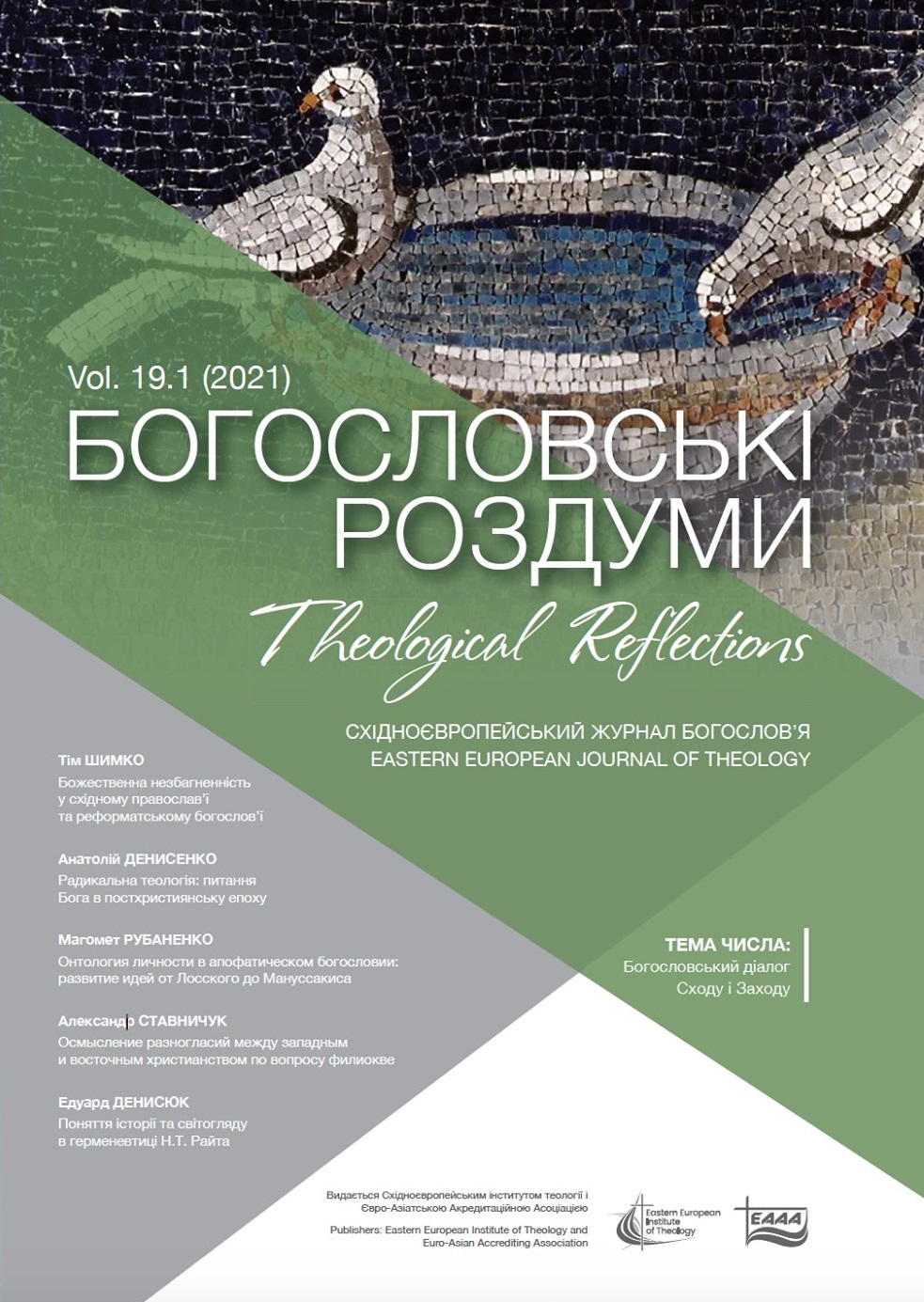Short Preface by the Translator to the Second Fragment of the Annotated Russian Translation of "Declaration of Sentiments" by Jacobus Arminius
DOI:
https://doi.org/10.29357/2521-179X.2021.v19.1.6Abstract
Выход предыдущего выпуска журнала «Богословські роздуми» ознаменовался важным событием: началась публикация (по частям) аннотированного русского перевода наиболее известного произведения нидерландского протестантского богослова Якоба Арминия (1559–1609) – «Объявления мнения» (лат. Declaratio sententiae).(1) Увидел свет первый фрагмент этого текста, который по праву именуется Предисловием или «личной история Арминия».(2) Он был снабжен биографическим и переводческим введением, которое помещало это Предисловие в соответствующие исторический и полемический контекст.(3) Теперь пришла пора опубликовать следующую часть арминиевского трактата.
Ниже вниманию читателей представлен второй раздел «Объявления», с которого начинается основная часть этого труда: глава «О предопределении» (лат. De Prædestinatione).
(3) Ростислав Ткаченко, “Конфликты Якоба Арминия и Предисловие к «Объявлению мнения»: биографическое и переводческое введение [Jacob Arminius’ conflicts and his Preface to the Declaration of Sentiments: a biographical and translatory introduction,” Богословські роздуми: Східноєвропейський журнал богослов’я / Theological Reflections: Eastern European Journal of Theology 18, no. 2 (2020): 153–84.
Downloads
Published
How to Cite
Issue
Section
License
Copyright (c) 2021 Ростислав Ткаченко

This work is licensed under a Creative Commons Attribution-NonCommercial 4.0 International License.
All articles published in the Journal are distributed under a Creative Commons Attribution-NonCommercial 4.0 International License
By submitting an article for publication in Theological Reflections: Eastern European Journal of Theology the author grants the editors the right to publish the article and distribute it in electronic and print form.
The author reserves all copyrights and the right to use the materials of the article in whole or in part for educational purposes, to write his own dissertations, to prepare abstracts, conference reports, oral presentations, etc., as well as post electronic copies of articles (including the final electronic version downloaded from the journal’s official website) on non-commercial web-resources without the consent of the editorial board and founders.



